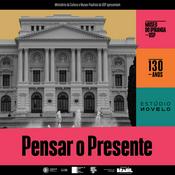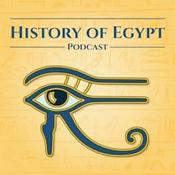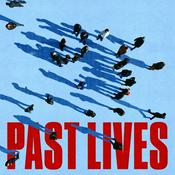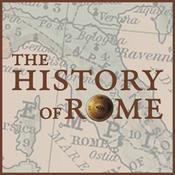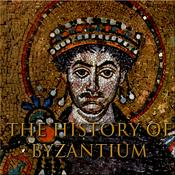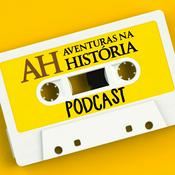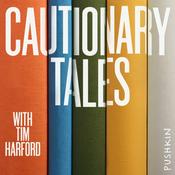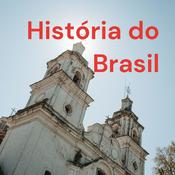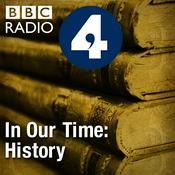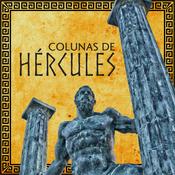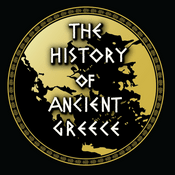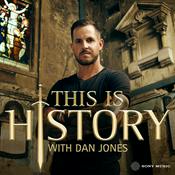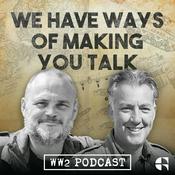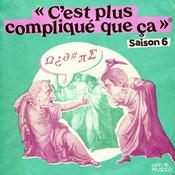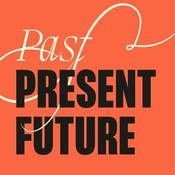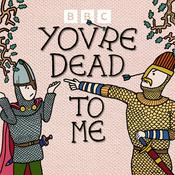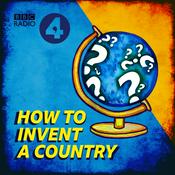1103 episódios
- Journalist, author and historian Misha Glenny presents his first edition of In Our Time, succeeding Melvyn Bragg who retired from this role last summer. Misha and his guests discuss the landmark work On Liberty by John Stuart Mill, published in 1859 and the increasing recognition for his wife Harriet Taylor Mill's contribution. The subject matter of the essay is ‘civil or social liberty: the nature and limits of the power which can be legitimately exercised by society over the individual’ and it argues that the sole end for which mankind may interfere with the liberty of action of anyone is self-protection and even then only to prevent harm to others. This essay became enormously popular and a foundational text for liberalism.
With
Helen McCabe
Professor of Political Theory at the University of Nottingham
Mark Philp
Emeritus Professor of History and Politics at the University of Warwick
And
Piers Norris Turner
Associate Professor of Philosophy at The Ohio State University
Producer: Simon Tillotson
Reading list:
Jo Ellen Jacobs (ed.), Harriet Taylor Mill, Complete Works (Indiana University Press, 1998)
Bruce L. Kinzer, Ann P. Robson and John M. Robson, A Moralist In and Out of Parliament: John Stuart Mill at Westminster, 1865-1868 (University of Toronto Press, 1992)
Christopher Macleod and Dale Miller (eds.), A Companion to Mill (Wiley, 2016)
Helen McCabe, John Stuart Mill, Socialist (McGill-Queen’s University Press, 2021)
Helen McCabe, Harriet Taylor Mill (Cambridge, 2023)
Piers Norris Turner, ‘The Arguments of On Liberty: Mill’s Institutional Designs’ (Nineteenth-Century Prose 47 (1), 2020)
Piers Norris Turner et al (eds.), John Stuart Mill and Harriet Taylor Mill, On Liberty with Related Writings (Hackett Publishing, forthcoming 2026)
Mark Philp (ed.), John Stuart Mill: Autobiography (Oxford University Press, 2018)
Mark Philp and Frederick Rosen (eds.), John Stuart Mill: On Liberty, Utilitarianism and other Essays (Oxford University Press, 2015)
Frederick Rosen, Mill (Oxford University Press, 2013)
Alan Ryan, The Philosophy of John Stuart Mill (Palgrave MacMillan, 1998)
Ben Saunders, ‘Reformulating Mill’s Harm Principle’ (Mind 125/500, 2016)
John Skorupski, Why Read Mill Today? (Routledge, 2006)
William Stafford, John Stuart Mill (Red Globe Press, 1998)
C. L. Ten (ed.), Mill: On Liberty: A Critical Guide (Cambridge University Press, 2008)
Nadia Urbinati and Alex Zakaras (eds.), John Stuart Mill’s Political Thought: A Bicentennial Reassessment (Cambridge University Press, 2007)
In Our Time is a BBC Studios production - While you wait for the new season of In Our Time with Misha Glenny, we’re introducing you to The Global Story, a new daily podcast from the BBC.
In this episode, writer and voracious reader James Marriott discusses the so-called 'death of reading'. He argues that we may be entering a post literate age – shaped by addictive screen culture, fragmented attention, and an overflow of trivial or unreliable information. The conversation traces how the 18th century 'reading revolution' helped shape the modern world, and what its decline could mean for education, culture, and democracy today.
If you enjoy this episode, you can find new instalments of The Global Story every day wherever you get your BBC Podcasts. - Before Misha Glenny's first edition on 15th January, BBC Radio 4's flagship news programme Today has brought Melvyn Bragg and Misha Glenny together so they can share their ideas about In Our Time's success and discuss what, if anything, will change with Misha. While Justin Webb chaired this discussion, here you will hear Melvyn introduce it and at the end he has a message for Misha and for listeners around the world.
This is a longer version of the discussion broadcast on Today on Radio 4 on Christmas Eve 2025 which was produced by Jade Bogart-Preleur, when Melvyn Bragg was the guest editor.
In Our Time is a BBC Studios Production. - To celebrate Melvyn Bragg’s 27 years presenting In Our Time, five well-known fans of the programme have chosen their favourite episodes. The singer Joan Armatrading has selected the episode about Charles Dickens and recorded an introduction to it (this introduction will be available on BBC Sounds and the In Our Time webpage shortly after the broadcast and will be longer than the version broadcast on Radio 4). Dickens is best known for the strength of his plots and the richness of his characters, but he can also be regarded as a political writer. Some have seen him as a social reformer of great persuasiveness, as a man who sought through satire to expose the powerful and privileged, and whose scenes moved decision-makers to make better decisions. George Bernard Shaw said of Dickens’s novel Little Dorrit that it was 'more seditious than Das Kapital'. Others argue that, although Dickens was a great caricaturist, he was really a conservative at heart. With Rosemary Ashton Professor of English at University College London Michael Slater Professor of Victorian Literature at Birkbeck College, University of London and editor of The Dent Uniform Edition of Dickens’ Journalism And John Bowen Senior Lecturer in English at the University of Keele Producers: Jonathan Levi and Charlie Taylor This programme was first broadcast in July 2001. Spanning history, religion, culture, science and philosophy, In Our Time from BBC Radio 4 is essential listening for the intellectually curious. In each episode, host Melvyn Bragg and expert guests explore the people, ideas, events and discoveries that have shaped our world. In Our Time is a BBC Studios production.
Mais podcasts de História
Podcasts em tendência em História
Sobre In Our Time
Spanning history, religion, culture, science and philosophy, In Our Time from BBC Radio 4 is essential listening for the intellectually curious. In each episode, host Misha Glenny and expert guests explore the characters, events and discoveries that have shaped our world.
History fans can learn about pivotal wars and societal upheavals, such as the rise and fall of Napoleon, the Sack of Rome in 1527, and the political intrigue of the Russian Revolution. Those fascinated by the lives of kings and queens can journey to Versailles to meet Marie Antoinette and Louis XIV the Sun King, or to Ancient Egypt to meet Cleopatra and Nefertiti. Or perhaps you're looking to explore the history of religion, from Buddhism's early teachings to the Protestant Reformation.
If you're interested in the stories behind iconic works of art, music and literature, dive in to discussions on the artistic genius of Michelangelo's Sistine Chapel and Van Gogh's famous Sunflowers. From Gothic architecture to the works of Shakespeare, each episode of In Our Time offers new insight into humanity's cultural achievements.
Those looking to enrich their scientific knowledge can hear episodes on black holes, the Periodic Table, and classical theories of gravity, motion, evolution and relativity. Learn how the discovery of penicillin revolutionised medicine, and how the death of stars can lead to the formation of new planets.
Lovers of philosophy will find episodes on the big issues that define existence, from free will and ethics, to liberty and justice. In what ways did celebrated philosophers such as Mary Wollstonecraft and Karl Marx push forward radical new ideas? How has the concept of karma evolved from the ancient Sanskrit texts of Hinduism to today? What was Plato's concept of an ideal republic, and how did he explore this through the legend of the lost city of Atlantis?
In Our Time celebrates the pursuit of knowledge and the enduring power of ideas.
Site de podcastOuça In Our Time, The Rest Is History e muitos outros podcasts de todo o mundo com o aplicativo o radio.net
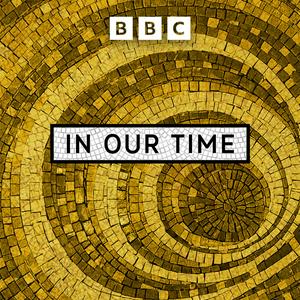
Obtenha o aplicativo gratuito radio.net
- Guardar rádios e podcasts favoritos
- Transmissão via Wi-Fi ou Bluetooth
- Carplay & Android Audo compatìvel
- E ainda mais funções
Obtenha o aplicativo gratuito radio.net
- Guardar rádios e podcasts favoritos
- Transmissão via Wi-Fi ou Bluetooth
- Carplay & Android Audo compatìvel
- E ainda mais funções


In Our Time
Leia o código,
baixe o aplicativo,
ouça.
baixe o aplicativo,
ouça.





